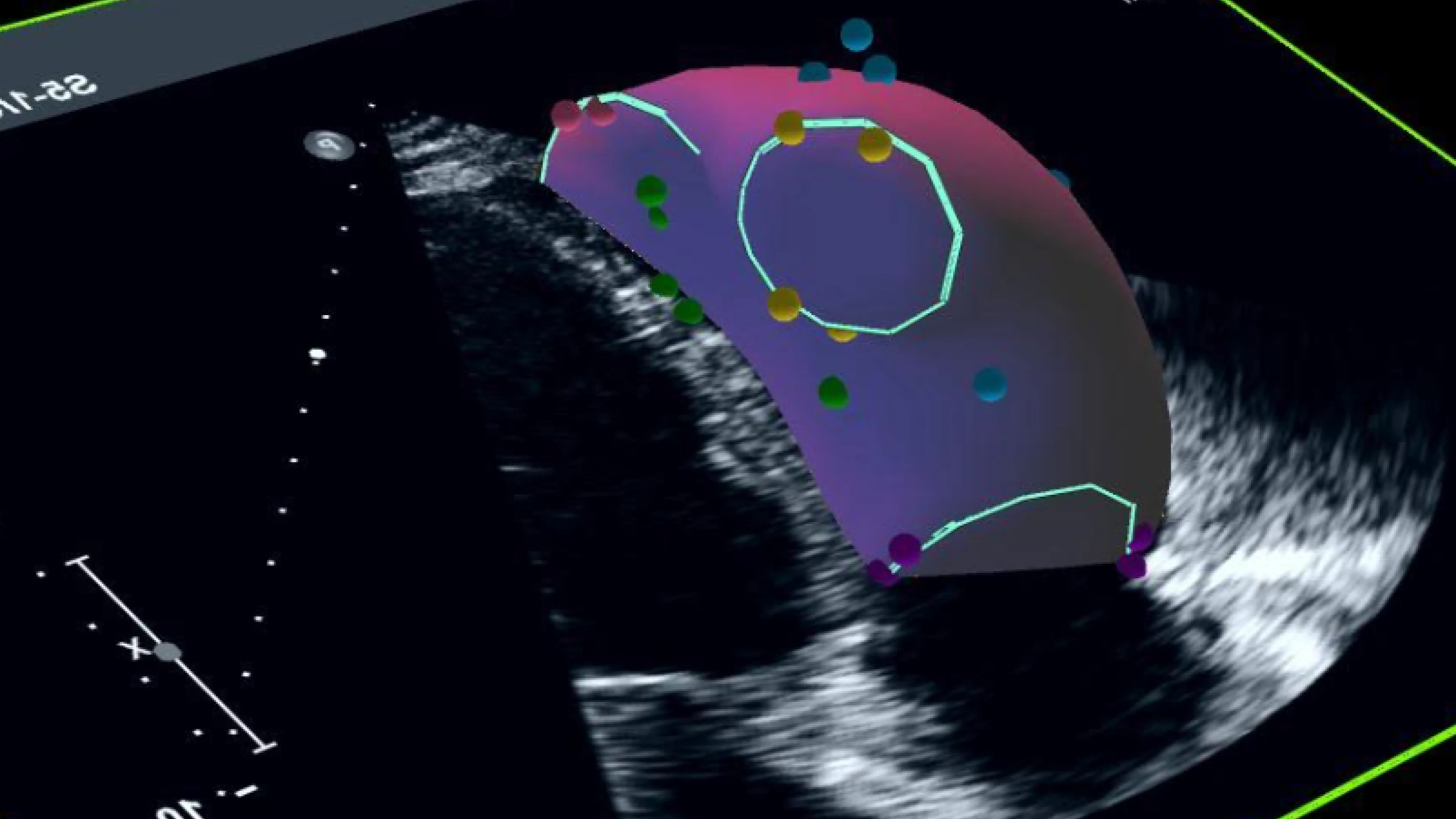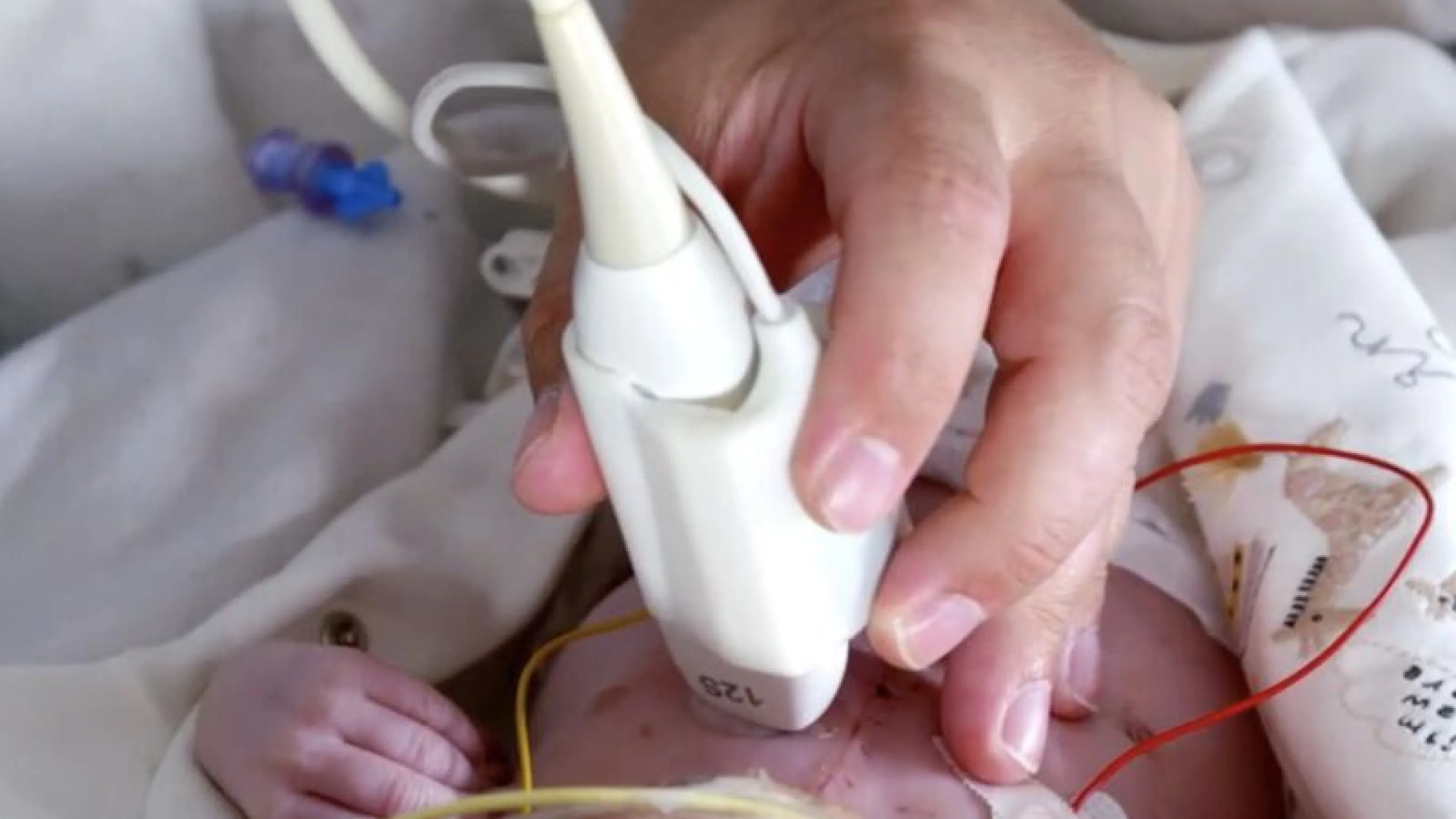Health-AI isn't just for drug discovery. Ventripoint and the power of AI in heart imaging

Canada stands at a crossroads of health crisis and health innovation. In this context Ventripoint has emerged as a standout, with some breakthrough tech that uses AI to improve patient care, and brings with it the potential to lower health system costs.
VMS+, Ventripoint’s new technology, is changing the way cardiologists view and understand the human heart. Using AI, it turns standard echocardiograms — ultrasounds of the heart — into precise 3D models, producing images and measurements that are equivalent in quality to what you’d get with a cardiac MRI.
MRIs, though expensive and time-consuming, are a valuable tool for diagnostic imaging in cardiac care. But many people with heart conditions never get one because they either don’t have geographic access or wait times make it impractical. Infants and children, who need to be sedated to make sure they stay still, also often can’t get MRIs.
These patients are the reason why VMS+ is a tangible example of how AI is going to dramatically reshape healthcare. They can’t get an MRI, but now they can get something that’s effectively just as good, faster, and at a much lower cost to the health system.
Ventripoint Diagnostics, based in Toronto, has spent the last 8 years developing VMS+, which has been licensed by Health Canada, cleared by the FDA, and CE-marked, and is being used in hospitals throughout North America and Europe. The technology integrates with any ultrasound system, enabling heart scans to be taken in much the same way doctors now perform pre-natal scans.
Company CEO Alvira Macanovic spoke to its unique capabilities relative to standard cardiac imaging methods. “It isn’t a clunky device,” she said. “It’s just two little sensors that are placed during an echocardiogram” — and importantly — “the patient doesn’t have to be still.”
“The right ventricle has always been a challenge in cardiac imaging, and congenital heart disease often affects the right ventricle,” Macanovic pointed out. VMS+ addresses this through its AI algorithm, which transforms limited and often suboptimal ultrasound images into individualized and precise 3D models of the heart.
"Most imaging tools aren’t designed to capture images of the right side of the heart," Macanovic added. Truly, the advancement in visualizing the right side of the heart is important for early diagnosis and effective management of congenital heart conditions. The breakthrough could be transformative for the lives of patients with these conditions, who often have limited diagnostic options due to the presence of pacemakers, being too young, or other conditions that make using an MRI challenging or impossible.
VMS+ Explained
At the core of VMS+ is an AI-driven process that leverages a vast database of MRI images. The software, akin to solving a complex jigsaw puzzle, meticulously assembles echocardiogram data into accurate 3D heart models, piece by piece. This innovation offers insights into cardiac volumes and ejection fractions with a precision that parallels that of an MRI, something that wasn’t previously possible.
Macanovic highlights the significance here, "The software is built on an MRI catalogue containing thousands of images. It’s a dataset created to recognize pieces of the heart and assemble them together—like a jigsaw puzzle—into a precise 3D model.” She further explains, "Cardiac volumes and ejection fractions you get from this are equivalent to an MRI.”
Clinical trials and early adoption have shown that VMS+ can effectively match the accuracy of MRI scans, particularly in pediatric cardiology, offering an alternative to traditional imaging methods that is dramatically more cost-effective and accessible. With widespread adoption of VMS+, Macanovic estimates up to tens of millions of dollars per year in health system savings for Canada and other jurisdictions.
Major hospitals, such as Stollery Children’s in Edmonton, have validated the accuracy and reliability of VMS+. Speaking about feedback the company has received, Macanovic says, “They have validated it for accuracy and reliability equivalent to cardiac MRI. Toronto SickKids was involved in the original clinical trials.” She notes a positive reception regarding the tech's ease of use, “we integrate into existing workflows, they don’t integrate into ours.”

The Impact on Patients and Families
Based on insights from Beth Rumack, an experienced neonatal nurse practitioner and COO of the Ollie Hinkle Heart Foundation, we can begin to see the impact VMS+ is already having on patient care, especially for young children.
Rumack emphasized the challenges of traditional cardiac MRI in pediatric care: "Children need anesthesia to have an MRI, which requires special monitoring and a full team," she notes, highlighting the inherent risks and complexities involved. In contrast, VMS+ offers a safer, more accessible alternative, providing MRI-equivalent results in a manner that is significantly more accessible, “it can be done for outpatients out of a cardiologist’s office."
In the case of a young child with a congenital heart defect, traditional MRIs also pose significant risks due to the need for anesthesia and the logistical challenges of scheduling and monitoring. With VMS+, a child can receive frequent, non-invasive, and accurate cardiac assessments. This ease of access to high-quality imaging allows for more timely and proactive cardiac care.
According to Macanovic, in a recent application, caregivers at a Czech hospital were able to obtain a heart scan of a 30-minute old neonate who would not have been able to undergo an MRI. “We saw that as a major proof point of how valuable AI can be to healthcare” she said.
"Anytime a company can provide less invasive care through tech advancements, that’s a win for patients and families," says Rumack, invoking a future where the widespread adoption of VMS+ could redefine the standard of cardiac care.
Ventripoint's innovation isn’t simply another AI tech breakthrough; it symbolizes the potential of Canada’s health-tech sector. Macanovic envisions VMS+ becoming a standard of care in hospitals not just nationwide, but globally, within an ambitious timeline of two to five years.
As Ventripoint gears up to release an updated version of VMS+, with novel heart function metrics and segmentation mapping of the right ventricle, the company is also poised to expand its impact beyond congenital heart disease. VMS+ holds promise in fields such as oncology and obstetrics, particularly in monitoring cardiac health during pregnancy and the cardiotoxic effects of chemotherapy.
As the country embraces technological innovation in healthcare, Ventripoint serves as both a model and a challenge for Canada — this sector, while brimming with potential, requires continual support in terms of policy, funding, and infrastructure to maintain its growth and global competitiveness.
“Canada has the ability to create innovations with global impact,” said Macanovic. “We’ve shown that in the past, and we are showing it now.”
This article was produced by Canada Healthwatch in collaboration with Ventripoint Diagnostics.








